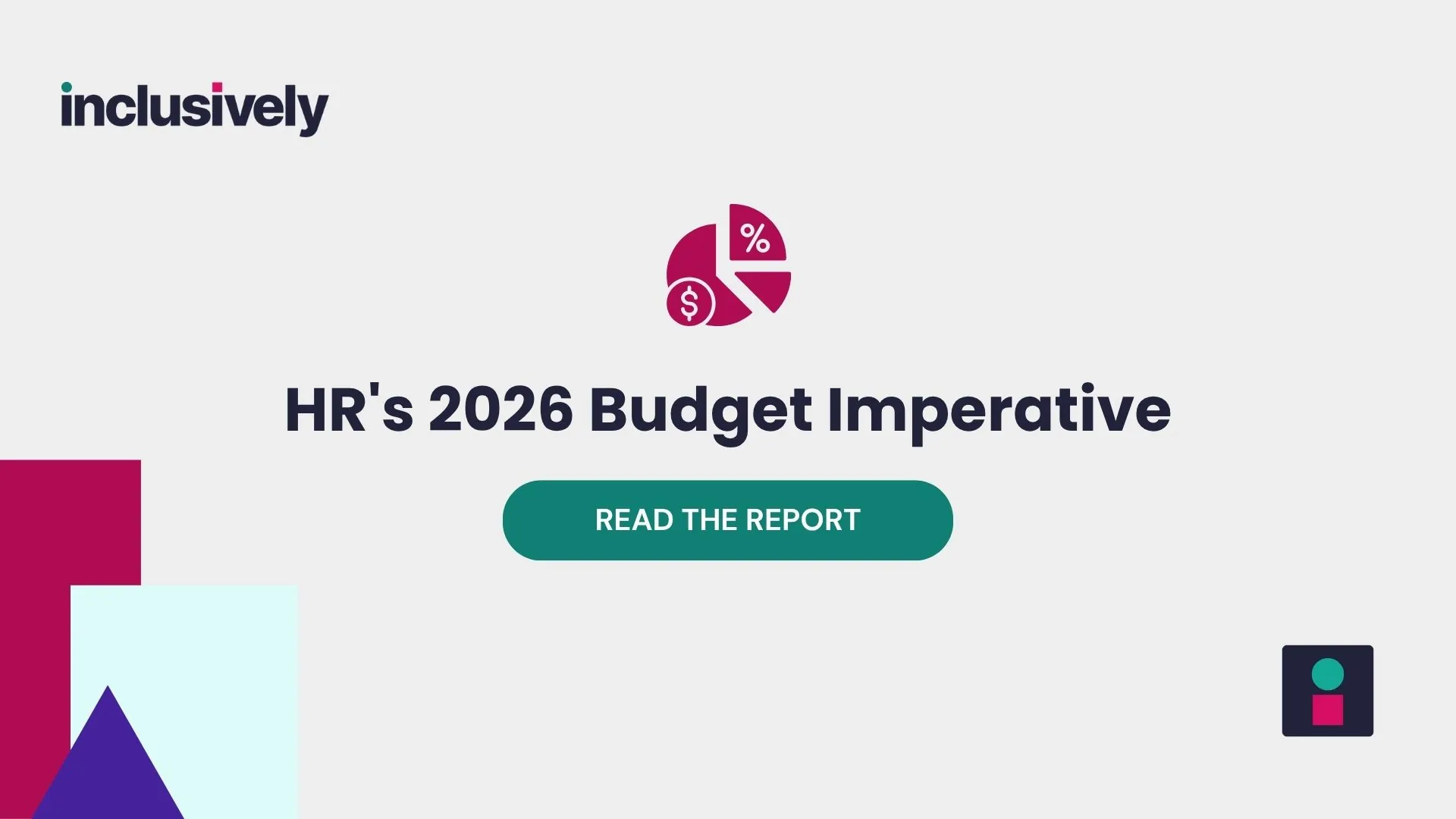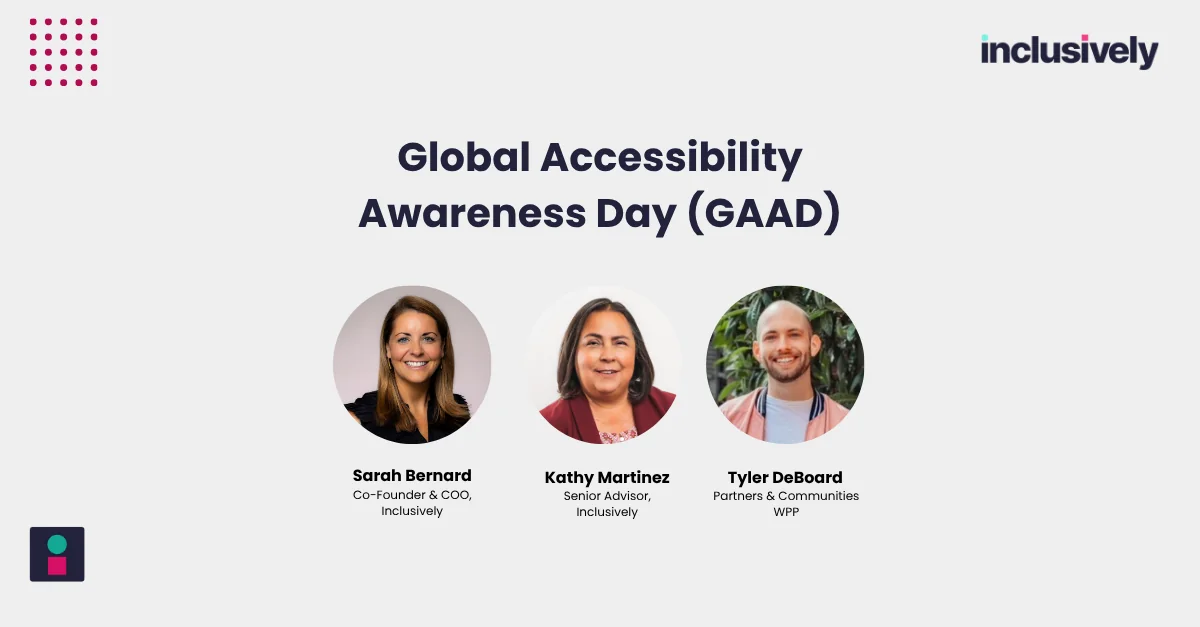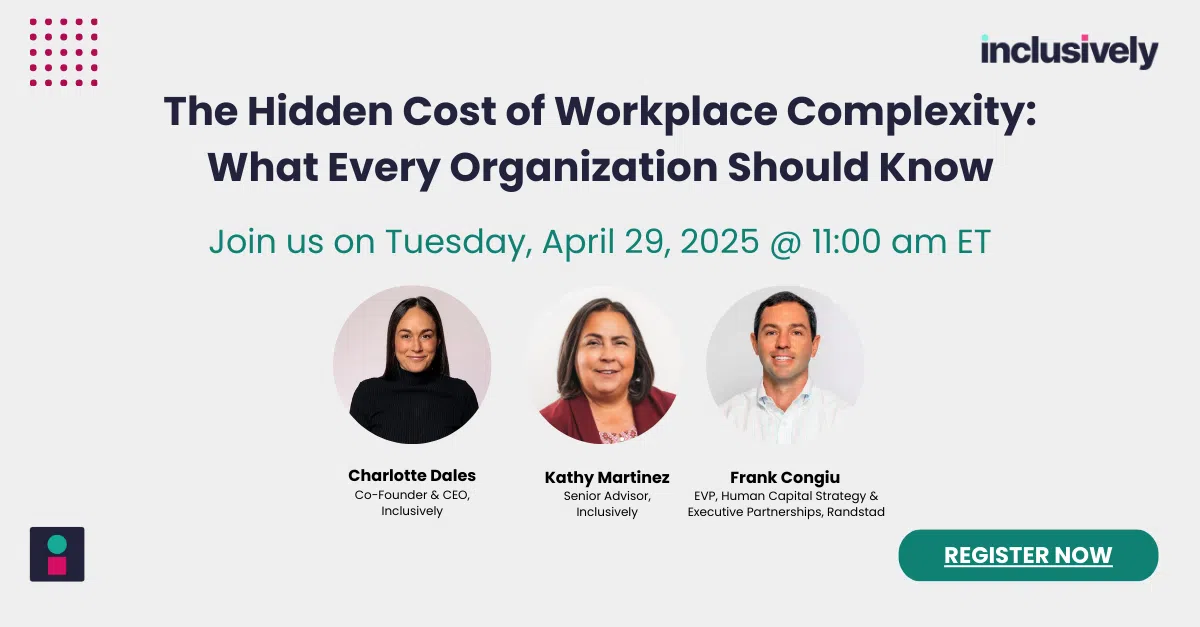Webinar
Work Inclusively
The Future of Disability Inclusion
Webinar Transcript
Christina Mallon
I love to see all these shining faces. Thanks so much for joining me guys. My name is Christina Malin. I will be moderating this panel. We’ll be talking about the future of disability inclusion as you know, I feel like everyone on this call are the world’s experts in disability inclusion and disability inclusion employment. So, I would love for you guys to introduce yourselves, talk about what you do, your passions and anything else you’d like to share with the crowd. We typically always go ladies first, but I’ll go guys first. So Jim, you can go first.
Jim Sinocchi
That’s a unique play for me. Thank you very much, ladies. I didn’t mean to cut in line, as many men do. I’m Jim Sinocchi. I work for JPMorgan Chase. I’m a managing director at the firm. I’ve been hired there since 2016 after I retired from IBM after a 40 year career. They wooed me out of retirement to do disability inclusion. And it was quite a challenge to go through an interview process that went from, I think, 16, to almost 30 people around the world, in the bank, who had representation in terms of running the business. And the firm wanted to make it clear that I had an opportunity to help change the business and do disability inclusion for them in their high standards, if you will. So very proud to be here and very proud to be with you all.
Christina Mallon
Thanks so much, Jim. And we’ll go next with Keah.
Keah Brown
Hi, everyone. My name is Keah. I am a journalist, author and screenwriter. And a lot of the work that I do involves identity. So I’m often talking about the way in which being disabled and navigating the world as a black disabled queer woman impacts not only how I see it, but how the world sees me and how it’s important that we live in a world where we have the same opportunities as a non-disabled person, because we deserve them. And I think that a lot of times when you look at the workforce, there are so many lost opportunities because people don’t look to us, and our expertise because of our disabilities. And so a lot of the work that I do is about identity and the importance of representation specifically in pop culture. I’m a big fan of film and TV. And so that’s more my wheelhouse. So, I just want us to be seen in our fully realized bodies as people with lives and things to offer the world.
Christina Mallon
Amen to that Keah, and Jenny, I would love for you to go next?
Jenny Lay-Flurrie
I’m Jenny Lay-Flurrie. I’m over in Seattle, and I work for Microsoft as the Chief Accessibility Officer. So my remit is really anything nerdy […] And we’re really driving disability inclusion within Microsoft and what we can do in society, really.
Christina Mallon
Thank you so much, Jenny, and Rebecca, we’re saving the best for last.
Rebecca Cokley
Hi, I’m Rebecca Cokley and I am an unabashed fan of Keah Brown. And my point over that shoulder, there is her book, buy her book, it is awesome. You need to put it on your Christmas shopping list. I have the pleasure of being the founding Founder and director of the Disability Justice Initiative at the Center for American Progress. And what that means is we are so far, but I keep hoping there’ll be more. The only political thing is a political project at a think tank that centers on disability issues in the mid Atlantic. And so I get to mess around in electoral politics and age with candidates and help make sure that they have disability platforms so that the progressive community is inclusive of the disability community and that the disability community is at the table on progressive issues.
Christina Mallon
And it’s so crazy when you say that because 20% of the United States has a disability. So it’s just really shocking to hear. Well, thank you so much for introducing yourself. So you guys are all my personal heroes. And you know, when I became disabled 10 years ago, I think a lot of your work gave me the competence and courage to know that I can kind of make a difference and change what I see especially in media marketing with what I do at Wunderman Thompson. So, you know, we all know you guys are extremely successful and you’ve had these amazing opportunities and made amazing changes. You have disabilities and have applied for jobs before so, what is some advice you can give to other people with disabilities when job hunting and holding HR teams accountable because the unemployment rate for people with disabilities is double the rate of people who aren’t disabled. it’s shocking, especially, you know, when you just see the pure talent in this panel. Who would just love to give that kind of advice? And how do you hold HR accountable? Who wants to answer this question?
Jim Sinocchi
Sure, I’ll start. Look, I think that part of it is that society is just catching up even after 30 years of the ADA, to embrace this community. But the other part of it is that our able bodied population really don’t really understand us or know how to react to us. Some of the experiences I had, and in talking with employees that we’ve hired with an invisible disability, is that they’re afraid to talk about it because they fear someone will hold it against them. And when you’re in a competitive environment like JPMorgan Chase, you want to be competitive. And, when I’ve heard from people I know or when people told me, I said, “Why didn’t you tell your manager you have a disability so that we can get you an accommodation?” And she said, “I didn’t want him to think less of me.” And so it’s the able-bodied paradigm. I was able-bodied once and I could understand that it puts a little tentativeness in our people who want to work here, but I can tell you this, when we hire people with disabilities at the bank, each of them are qualified to work here. We don’t hire people because they’re disabled. And that has to be made very clear. And I think we have to get over the tentativeness of telling our able-bodied colleagues about our disabilities, I found in my experience that most people are apprehensive about us or even theorists, because they think they’re either going to be politically incorrect, or afraid they’re going to catch something. Right? They just don’t know, should I shake your hand?
There was a book when I was at IBM that we were made to read when we traveled overseas, Kiss, Bow, or Shake Hands about how you greet people who are different, basically. And I think that nomenclature still has to be learned at places like JP Morgan, Chase and other places. And we have a responsibility as I tell my disabled colleagues, you have to own your disability, and make that person comfortable with you. Because they don’t know how to approach you. They don’t want to be embarrassed. And most of all, they don’t want to offend you.
Christina Mallon
Yeah, I mean, I definitely totally agree and have experienced that. Would anyone else like to add to that? Hey, Rebecca, are Keah? Do you wanna go?
Rebecca Cokley
I don’t think it’s on us to make non disabled people feel comfortable. I think that’s crap. I think it’s 2020. And I think the ADA has been a law for 30 plus years, I think companies need to get with the times, and we need to see greater enforcement. I think I’ve been told in a number of jobs, “well, you just have to make non-disabled people feel comfortable around you.” And maybe it’s because I grew up in a family where both my parents had the same disability I did. I never saw myself or my body as anything but the norm as anything but radical and beautiful and audacious because that’s what I get back from my family. And so I moved about the world in a way that like I’m entitled to be here, I have a right to be here. I have a right to hold this . I have a voice and I need to use it. We might not look at employers and or employees and judge them whether or not they’re disabled. But having been a recruiter, I was President Obama’s recruiter at the White House. I remember looking at resumes and judging somebody went to Harvard, somebody went somewhere else. I went to a community college and then the University of California Santa Cruz, home of the fine Banana Slugs, best mascot ever. And that perspective fundamentally shifted how I look at people coming in the door. I was impressed if you were at Harvard, I wouldn’t know if you knew how to design games and tabletop gaming for a job on financial literacy. And so I think we really have to break a lot of these paradigms that are based on notions of ableism, notions of class and notions of elitism and have the actual conversations around privilege and an understanding of what it is that we are as disabled people. We deserve access to it because we deserve access to everything, but we don’t necessarily get it.
Christina Mallon
Yeah, I see you waving that hand.
Keah Brown
A word? I agree. I think that, for so long, I spent too much time trying to make non-disabled people comfortable and want me to be a part of their newsrooms in particular, before Corona. it was just, I was just constantly told remote work wasn’t possible that I had to be in the room, there was just no way possible to put me on the staff and let me write, because that’s just not the way things work. And so when Corona hit, all of these jobs went remote overnight. It wouldn’t be so funny if it wasn’t so disrespectful. Because I think it’s hard to respect places and people that don’t respect you. And I think people are catching up too slowly. And I find that even though you’re nice to them, it doesn’t mean that you’re going to get what you want. And so I understand the importance of being professional and being true to your work and letting that shine for you, but you also have to just be honest. There’s a stigma to disclosing that you have a disability. And so if you can hide it, a lot of people do. And I think what we have to do is rid ourselves of the idea that a disability is something to hide in the first place. And so I do find myself frustrated with the idea that we have to somehow make ourselves palatable to non-disabled people, instead of just being who we are, and letting that shine through in interview rooms, or even after we get the job. If we got the job, I was just gonna say, I totally agree with Rebecca. Jenny, please add.
Jenny Lay-Flurrie
I knew this was gonna be a good conversation. Disability is a skill, it’s an expertise, it’s a strength, and we are honestly all dying for talent within companies. So I think there’s a massive responsibility on employers to make sure your process, soup to nuts, is accessible. And the only responsibility I would put on a person with a disability, myself included, is to be picky about what you go for and keep a high bar. And if you can’t apply for a job on our website, that’s a problem. If there is information about the disability culture and the disability community on their website, and they’re not showing themselves as seeing you as strength and talent, that’s a problem. Now, you can then decide how you fight that head on. I’m so used to seeing ourselves as the talent because trust me, we all want it and we want to compete for it. We have absolute expertise that every company needs, if they’re going to build whatever they’re building to be accessible, inclusive, for this massively huge community. And if you don’t have people with disabilities in the fabric of your company, you are quite simply missing out or you’re going to build bad stuff. So it’s, we’ve got to change the lens. This is how we’re all competing. And I have seen that change. But yes, it’s got to change more than we have seen.
Christina Mallon
Yeah, I definitely agree. And I think what’s so great about inclusivity and the reason why I joined the board was because I never had the ability to. All I knew was JP Morgan, Microsoft as the two companies that care about disability because I know both of you on this panel. But I wanted to find more companies. And that’s what is great. Companies that don’t want disability inclusion don’t come to Inclusively looking for disabled people to hire and I think what’s really interesting about Microsoft and I just saw that you guys disclosed your North America numbers of how many disabled employees that you have. How did you create a culture to get people to come out of the closet because as Keah said, I don’t know what it looked like before this radical inclusion that’s happened. In the past, we’ve been told not to talk about our disability at work.
Jenny Lay-Flurrie
So yes, yesterday we shared step one and a long journey that we’ve been on. I want to empower our own employees at Microsoft to see their disabilities or strength to self identify and to share that disability. And we published those numbers yesterday. So yesterday we published 46 authentic surveys, so trust me, we still have a ways to go. And 13.2% that have taken it identify positively as having a disability, which right now means that I’ve got a 6.1% representation in the US. Now, that’s been a long journey. And I think for Microsoft in some ways, the nerdiness helps. Because it’s so tangible and connected to the strategy of the company. Our boss has a mission, which is to empower every person. I think that the word “every” is really important, because that’s including people with disabilities. We’ve got a very strong disability ERG. In fact, that’s how I got into this gig: building and sharing that community for 10 years. When you’re building an Xbox, when you’re building Windows, you’ve got to make sure it works, right? So you’ve got to have that expertise. There’s this beautiful connection. And over time, by reinforcing that, by making it easy, we’ve been able to gradually grow the number of people that have taken that step. And by the way, clicking that button is a huge deal to say yes, this is me. But are we where we want to be? No, we’ve got an ambition to reflect the 15 to 20% that’s out there. We’re serious about that. And so this is the “step one” for us. But I was glad to get those numbers out there.
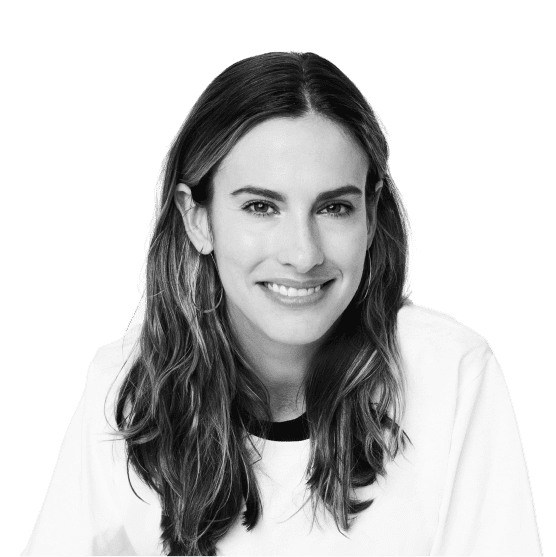
Christina Mallon (She/Her/Hers/Disabled)
Director of Inclusive Design, Microsoft
Accessible Work Environment
Extended Time
Captioning
Notetaker
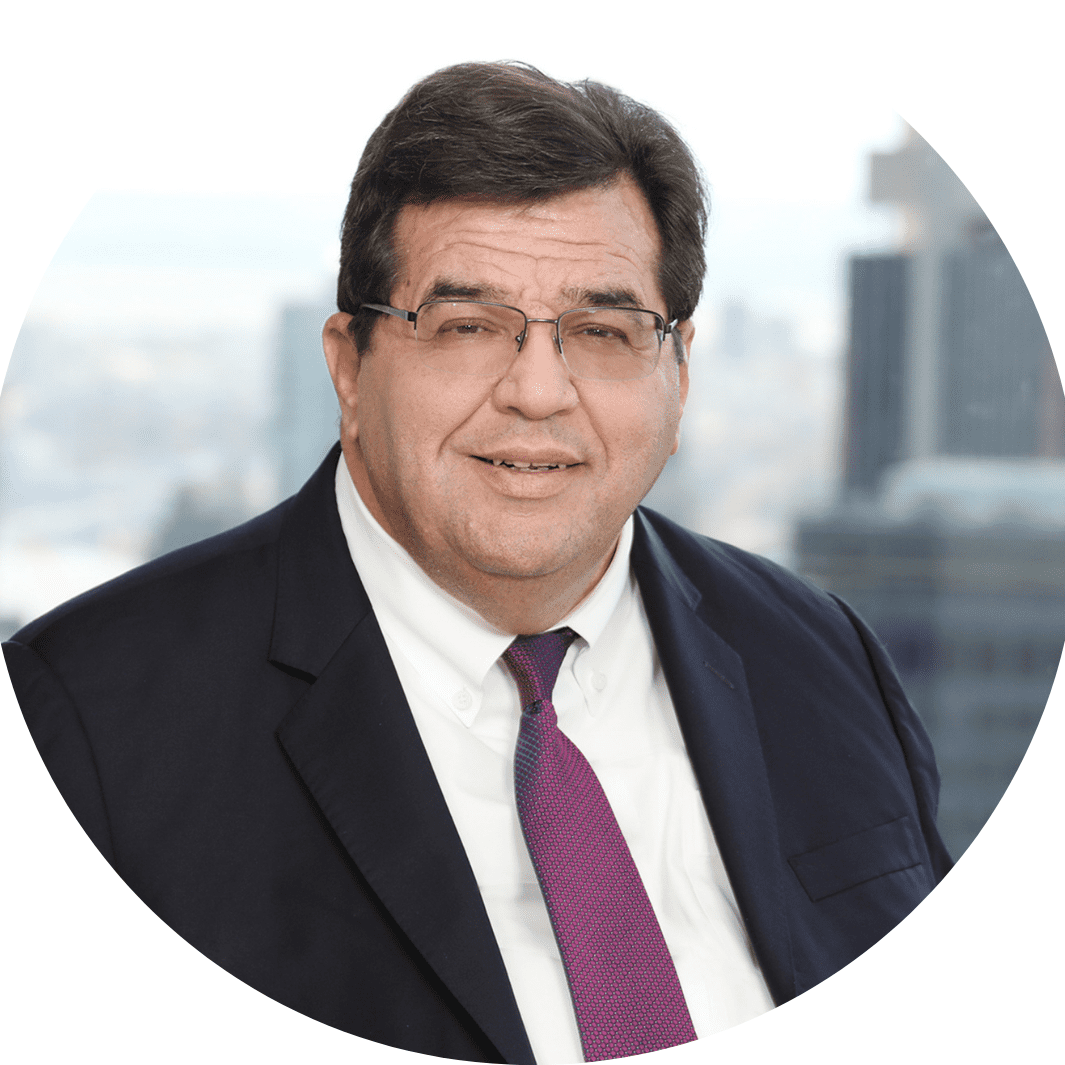
Jim Sinocchi
Head of Disability Inclusion, JPMorgan Chase & Co.
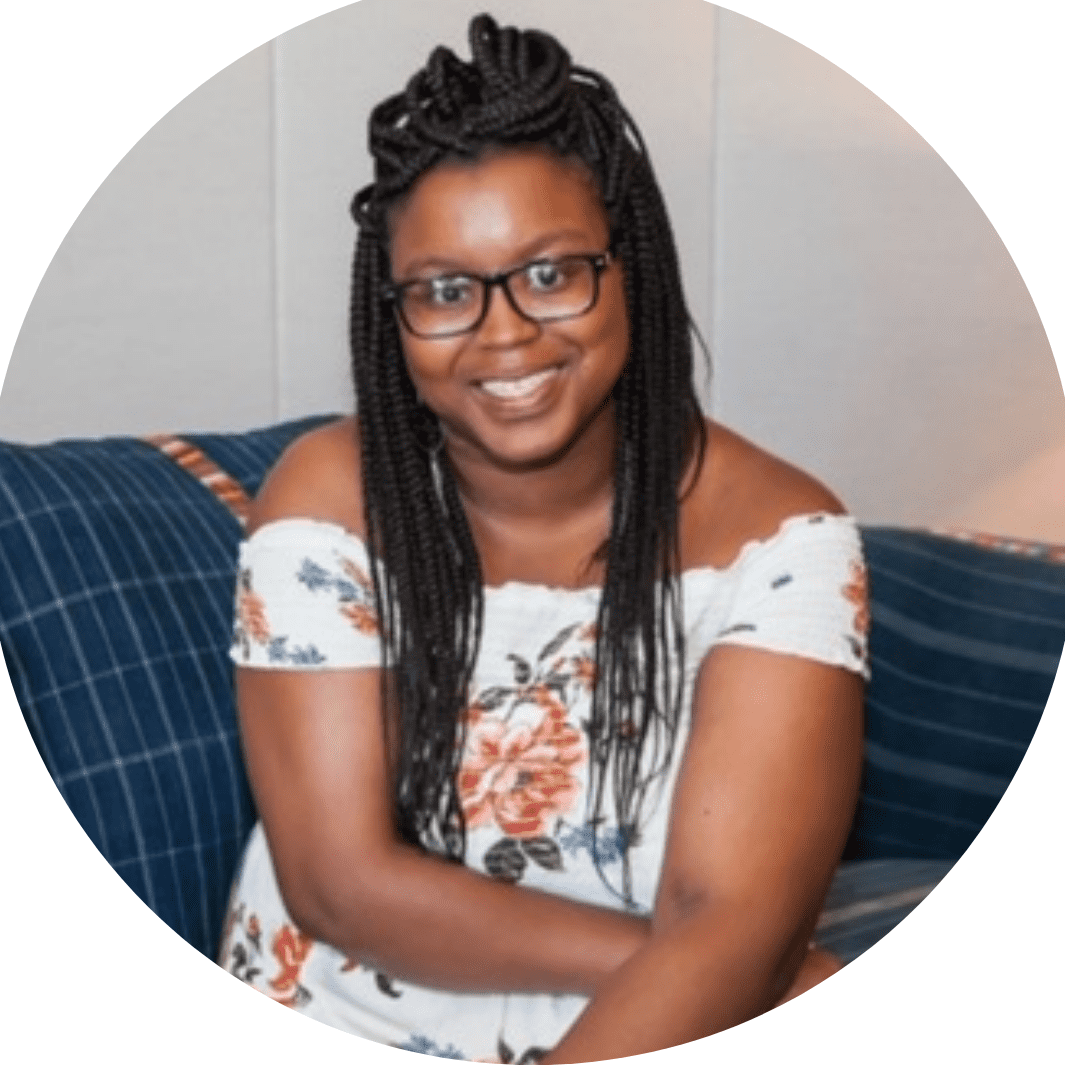
Keah Brown
Journalist, Screenwriter, and Writer
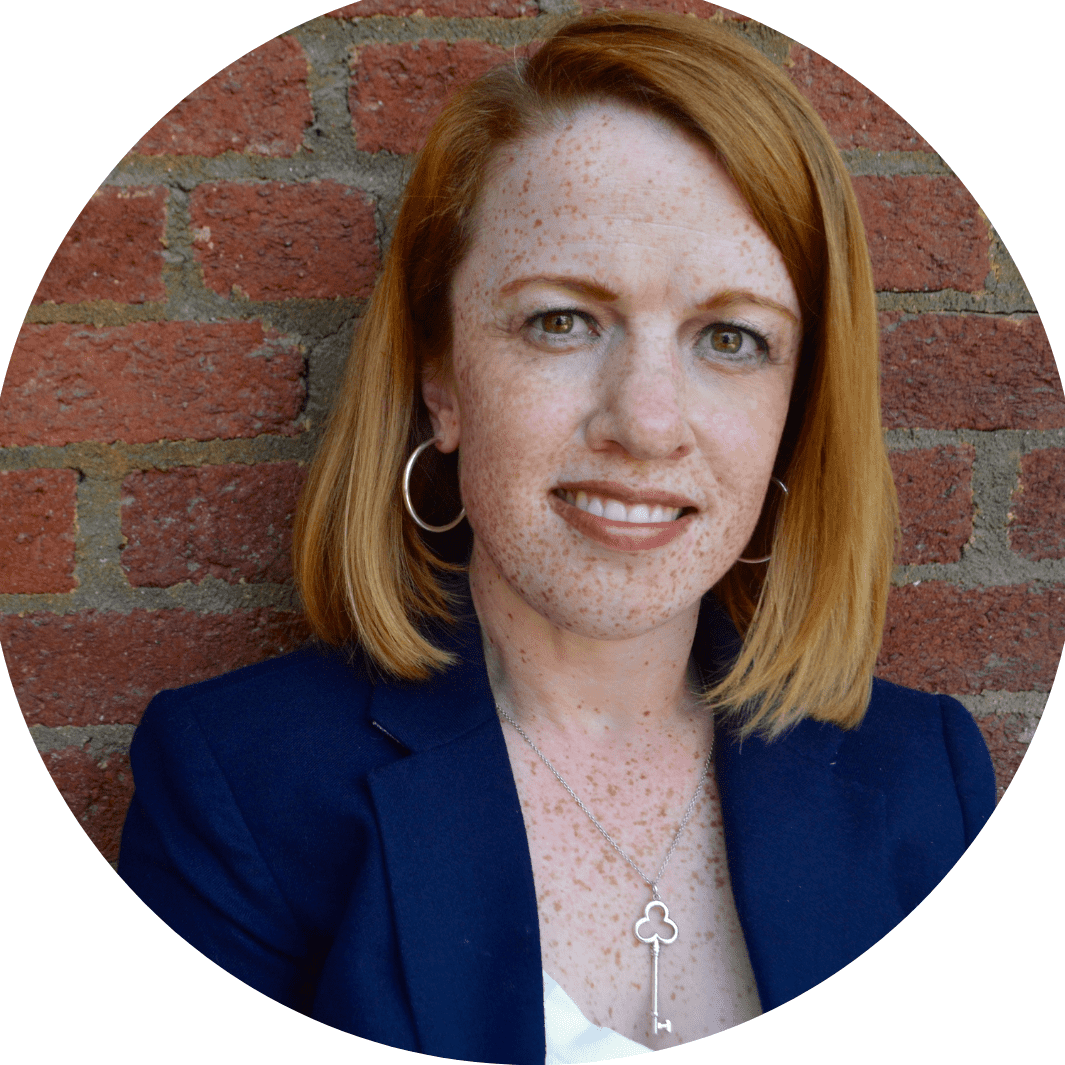
Rebecca Cokley
Director, Disability Justice Initiative
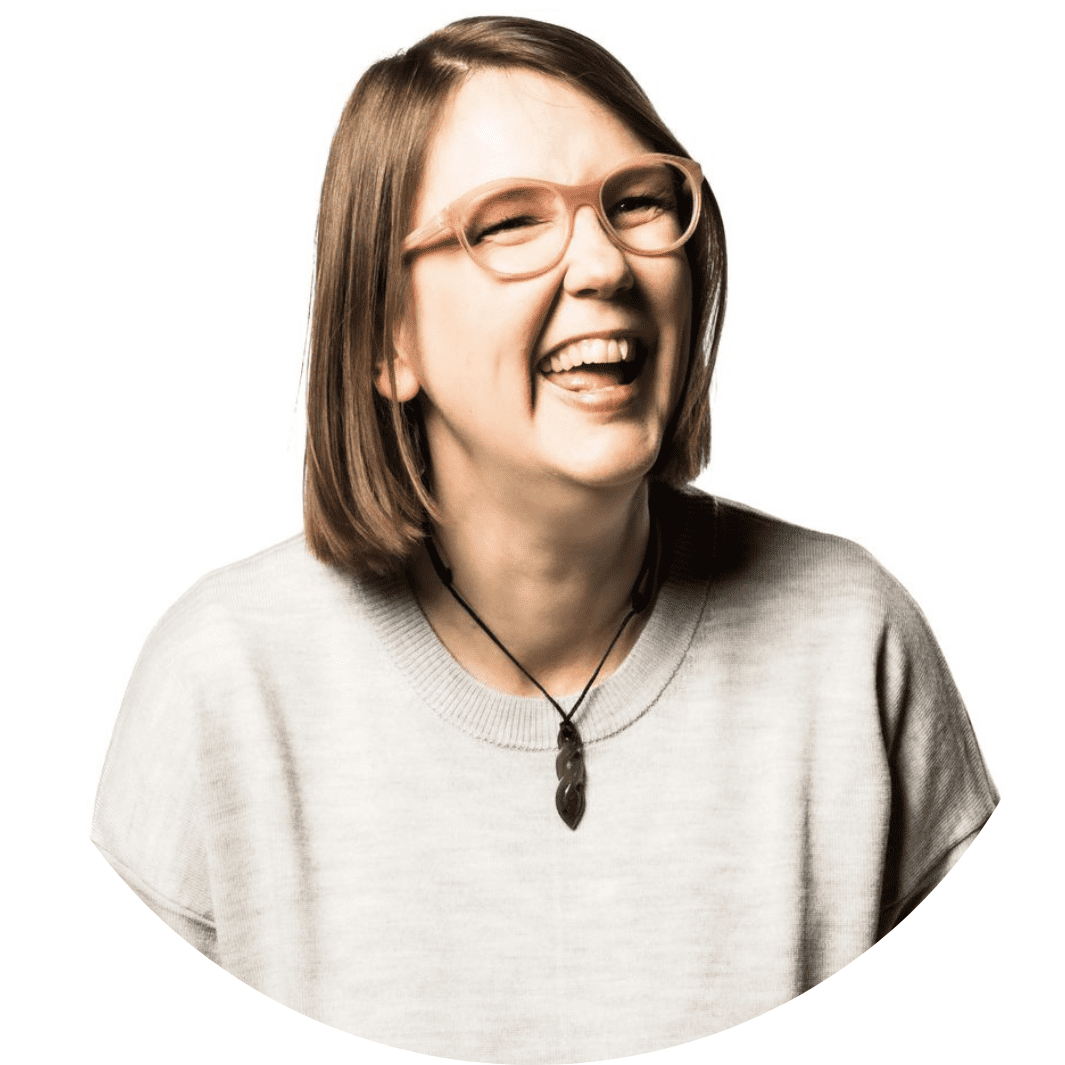
Jenny Lay-Flurrie
Chief Accessibility Officer, Microsoft
